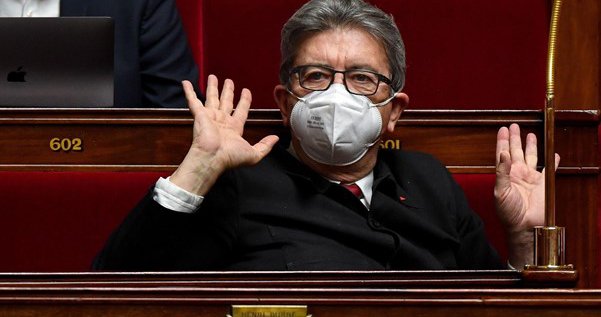How battling France’s COVID pass led the Left to embolden the far Right

France’s introduction of a COVID health pass to enter certain public spaces has been met with widespread opposition – but the Left is doing itself no favours by joining in the protests.
In July, the French government introduced the rule that the public must show they have been vaccinated against the virus or had a recent negative test to gain access to public venues that can host more than 50 people, as well as restaurants, cafés, and long-distance trains.
By taking to the streets to protest against the rule, the Left has made cardinal errors, both ethically and politically, and thus contributed to a political muddle-headedness that provides coverage for conspiracy theorists and the far Right.
The decision to bring in a prerequisite to access certain public spaces or services is in some ways arbitrary, as well as being ultimately unsatisfactory, given the current situation. Its introduction might have been more justified if those vaccinated against COVID-19 became permanently immune to it and could not transmit it – but that is not the case.
Nor are some of the practicalities appropriate. Why, for example, is the pass needed for outdoor venues such as café terraces if social-distancing rules are being complied with? And the legislation contains questionable measures: a negative test is valid for 72 hours (instead of the 24 hours accepted in Germany, for example). A person could be incubating the virus, which may be undetectable at the time of the test and may not manifest until the third day after infection, therefore extending the risk of greater illness and transmission.
There is also reason to bemoan the French government’s dual authoritarianism and amateurism. The health pass was made mandatory without any consultation or explanation of the potential benefits in a controversial move by President Emmanuel Macron – who has single-handedly made decisions on French health policy for the past 18 months, with some of them flying in the face of medical advice. The botched debate in the National Assembly that led to the adoption of the health passport law, should not deceive anyone.
A gimmick of little use
The health pass was cobbled together to make up for the severe deficiencies of the French welfare state since the start of the pandemic (and indeed before that): a lack of investment in public health (hospital staff and facilities/equipment); an erratic vaccination drive that leaves behind vulnerable groups (the working classes, ethnic minorities and young people); and inconsistent, and at times even misleading, health messaging since spring 2020 (on wearing masks and other measures that the public could take to combat the spread of COVID-19).
The supposedly democratic Caesarism of France’s Fifth Republic is actually inherently undemocratic and inimical to public freedoms. Judging by what protesters have been saying, condemning the ‘health dictatorship’ or the ‘tyrant Macron’, one might think France has just experienced a coup d’état. However, as the former president François Mitterrand famously wrote, the coup became a permanent fixture when the current constitution was passed in 1958.
Creating hysteria around a complex issue will do nothing to develop a progressive perspective regarding the health situation. Personal rejection of and contempt for Macron cannot serve as a political roadmap for a French Left that is weak and struggling to be heard as never before. Any potentially positive effects of this health pass are unclear and it was imposed without any public debate, leading to the conclusion that at best, it is a gimmick of little use. The Left could have grasped the situation and focused on what really matters: keeping up pressure on the government to ensure a more effective rollout of the vaccination drive. After all, scientists agree that the only way to beat the pandemic will be to vaccinate a substantial proportion of the global population.


